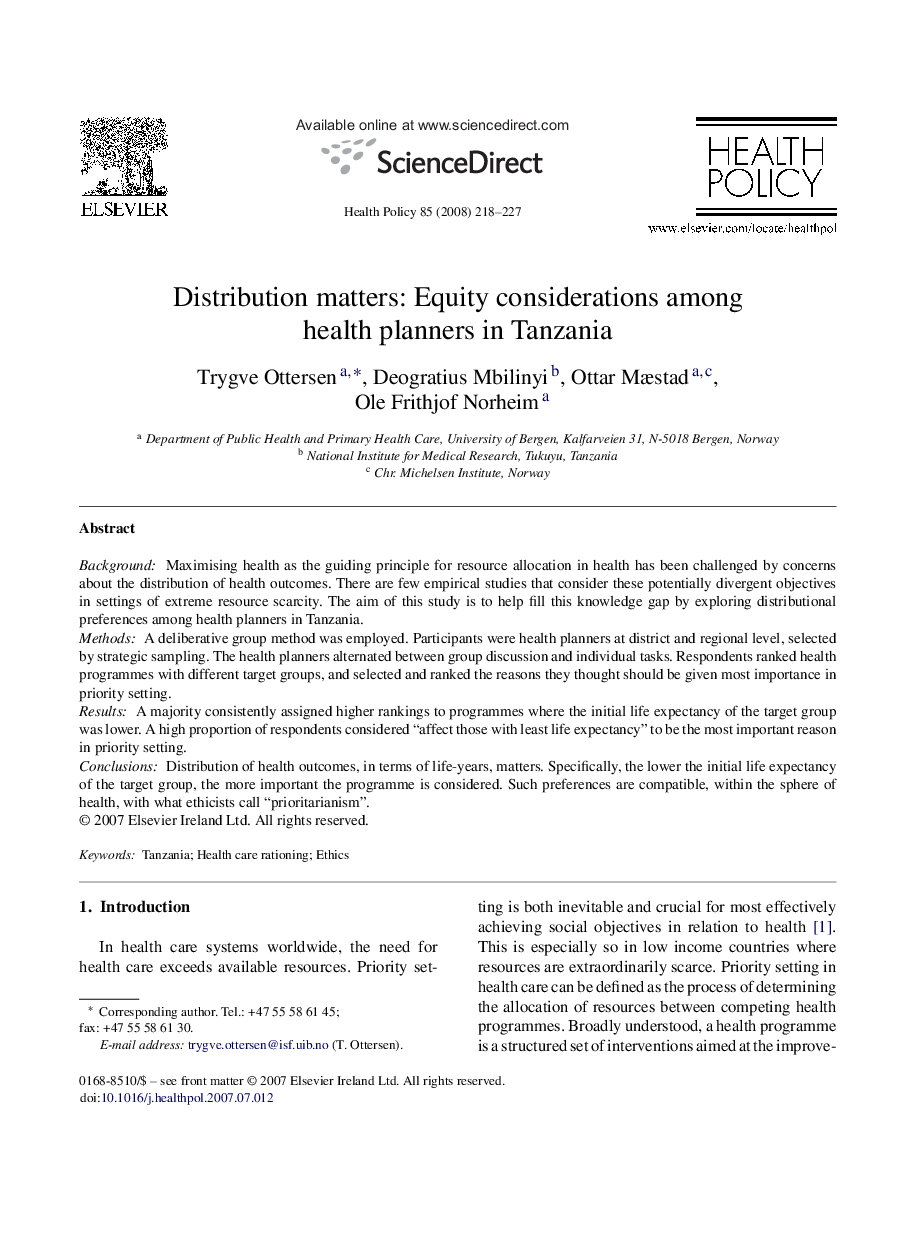| Article ID | Journal | Published Year | Pages | File Type |
|---|---|---|---|---|
| 4198666 | Health Policy | 2008 | 10 Pages |
BackgroundMaximising health as the guiding principle for resource allocation in health has been challenged by concerns about the distribution of health outcomes. There are few empirical studies that consider these potentially divergent objectives in settings of extreme resource scarcity. The aim of this study is to help fill this knowledge gap by exploring distributional preferences among health planners in Tanzania.MethodsA deliberative group method was employed. Participants were health planners at district and regional level, selected by strategic sampling. The health planners alternated between group discussion and individual tasks. Respondents ranked health programmes with different target groups, and selected and ranked the reasons they thought should be given most importance in priority setting.ResultsA majority consistently assigned higher rankings to programmes where the initial life expectancy of the target group was lower. A high proportion of respondents considered “affect those with least life expectancy” to be the most important reason in priority setting.ConclusionsDistribution of health outcomes, in terms of life-years, matters. Specifically, the lower the initial life expectancy of the target group, the more important the programme is considered. Such preferences are compatible, within the sphere of health, with what ethicists call “prioritarianism”.
